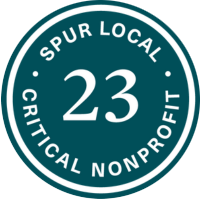
TESTIMONY IN SUPPORT OF HB166
Payment of Wages – Minimum Wage and Enforcement (Fight for Fifteen)
TO: Hon. Dereck Davis, Chair, and members of the Economic Matters Committee
FROM: Natalia Skolnik, Jews United for Justice (JUFJ)
My name is Natalia Skolnik, I live in Baltimore City, and I am here today to testify in favor of HB166, the bill to raise the minimum wage to fifteen dollars an hour. I am a member of Jews United for Justice, an organization of 5,000 Jews and allies in Maryland working for social, racial, and economic justice.
The Torah teaches us,“You shall not abuse a needy and destitute worker, whether your kin or a stranger in one of the communities of your land. You must pay them… for they are needy and urgently depend on it.” (Deuteronomy 24:14-15).
Every human deserves to be treated with dignity in their work. Establishing a fair minimum wage should be the norm in our state for everyone who works, regardless of age or field of work. I come to you today to share some insights I’ve learned from twelve years of teaching in public high schools and also having worked in nonprofit organizations in Maryland.
In my many years of working with teenagers, I have seen that teens get a bad rap. People write them off as entitled or think they cannot possibly have real bills to pay or that they should be paid less than adults. But I’ve come to see patterns of youth workers shouldering more and more responsibilities, and I am very concerned. Every year I see more and more students needing to work to help their families make ends meet. Every year I see more students skipping part or whole days of school to work, usually in minimum wage jobs. And when I’ve talked to them about it, I’ve learned that they often had to pick up extra shifts when adults in their houses couldn’t.
Some teens put most of their paychecks towards paying family bills, many also had to pay for their own school supplies and clothes, and some help pay rent. Others were the family breadwinners, as at least one of the adults in their family was sick and couldn’t work. Some students missed school because they were the only ones who could stay home to provide childcare for young siblings and cousins since the adults in their homes were working 2-3 minimum wage jobs each to provide for their families. And when a person works minimum wage, they cannot afford daycare or nanny shares.
These were not entitled kids. These were youth who had no choice but to prioritize their families’ survival for that week or month or year over their own long-term goals. If they or the other workers in their families could have earned more money per hour, they wouldn’t constantly be in that barely surviving mode. Most of the youth I’m talking about were smart enough and hard working enough to have thrived in high school had their living conditions been different. Most didn’t succeed academically because of missing so much school. And this is how structurally reproduced poverty continues.
Pundits claim that minimum wage jobs are for first time workers, that once people get experience and education, they can and will attain higher paying jobs. But experienced adults working in schools are being paid minimum wage. I’ve seen para-educators take their students with special needs to sort out recycling from trash cans because that’s what they felt they needed to do to make bills that month. And their supervisors looked the other way. Constant turnover of teacher’s assistants, para educators, and teachers is due in large part to low pay. More than half of the teachers I’ve met at my kids’ schools have second jobs. And professionally, I’ve seen a lot of talented colleagues burn out and leave because of impossibly low pay. Nobody with college loans can afford to keep these positions, and these positions often aren’t up for raises.
This brings me to another group: nonprofit workers. After leaving the classroom, I’ve worked for the last few years in nonprofits running youth violence prevention programs with youth, and I am currently job searching. I see a lot of job postings that pay minimum wage for work that requires multiple degrees and credentials. There are many jobs in the education and social services sector that nonprofits now fill that require multiple degrees. They pay minimum wage or not much more. While nobody goes into non-profit work to get rich, everyone needs to earn enough to eat every day, pay rent or mortgage, heating, pay back college loans, etc. Nobody can take care of others well when their own jobs do not meet their own needs.
Because most nonprofit and education work have historically been done by women, we have historically been overlooked and ignored as workers deserving of a fair wage. This needs to stop. And it will only stop when all employers are legally mandated to pay more.
We have an opportunity and an obligation to stop these oppressive patterns from continuing.
It’s a sacred obligation. You have the opportunity make this right by supporting HB166. I urge you to pass this bill and make sure it is one that protects rather than cut out the vulnerable workers in our state.





